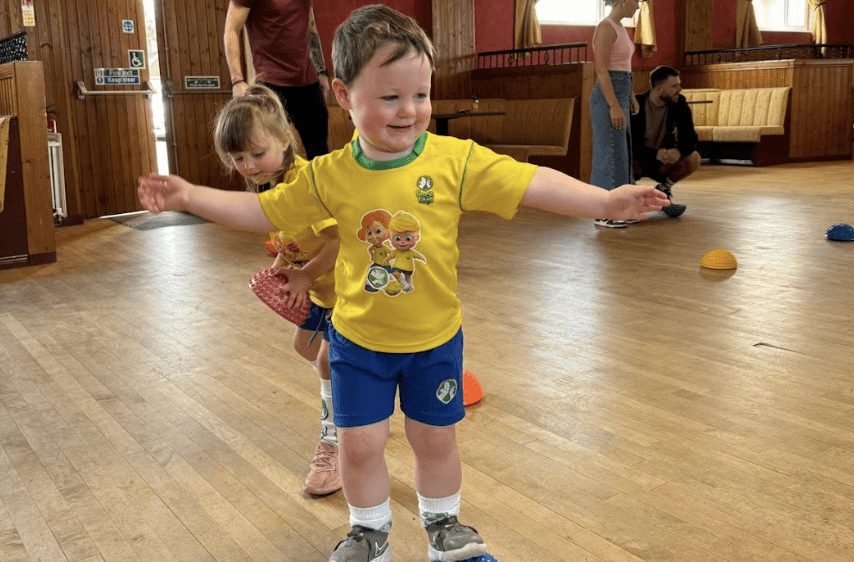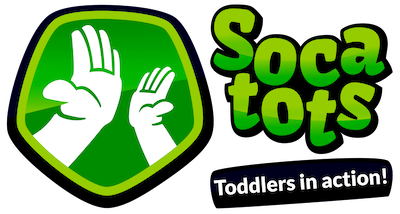The benefits of physical play go much more than building muscles and keeping your child healthy. Here, we will look at our top five benefits of physical play in early years.
The modern world is a more digital place than ever before. Children have access to smartphones and iPads from a young age and there are worries about this affecting the health of our children.
Although this more digital world does come with many positives, such as social connection and access to information, there are also many negatives. Children are becoming the targets of online bullying, their sleep is disturbed and their self-esteem is being diminished due to them comparing themselves to the people they see on the internet. On top of all of this, excessive smartphone use is leading to children being less physically active.
Physical activity and physical play are both so important in your child’s early years. Within this article, we will look at what physical play actually is and tell you our top five benefits of physical play in early years.

What Is Physical Play?
Physical play is all the activities that encourage your child to move around and exercise. It includes small and large movements, from throwing or kicking a ball to taking a walk. Physical play is an extremely important part of your child’s early child’s life, as it will help them to maintain their physical fitness, release pent-up energy, reduce stress and socialise with others. Physical play will help your child to grow up strong, healthy and happy.
Some examples of physical play include:
- Riding their bike
- Climbing
- Swimming
- Hopscotch
- Dancing
- Ball Games
5 Benefits Of Physical Play In Early Life
There are many benefits of physical play in early life. Within this section, we are going to talk about our top five benefits of physical play and how it will help your child.
-
Develop Motor Skills
One of the biggest benefits of physical play in early life is that it will help to increase your child’s motor skills. Doing physical play activities like riding their bike or swimming, will help your child to develop their gross motor skills.
Motor skills are really important because they will help your child in their day-to-day life, will reduce the likelihood of injury or accidents and they will even help your child in their academic activities as they will be able to sit comfortably and listen to their teachers.
Physical play helps with the development of your child’s motor skills because it is helping them to refine their movement and helping them to learn how to control their bodies.
-
Building Strong Bodies
There are many health benefits to physical playing in early life. Physical play will help your child to build strong bodies. It will help them to develop a strong heart, strong muscles, lungs and bones.
Children who engage in physical play in early life are more likely to continue to be active in their adult lives so a big benefit of physical play in early life is that it is setting your child up for a healthy life.
-
Helping Their Mental Health
Along with helping your child’s physical health and development, physical play in early life will help your child’s mental health.
Playing allows your child to explore their feelings and express themselves in a relatively safe environment, even if these feelings are confusing or painful. This helps them to develop a sense of self through physical play and it can influence your child’s ability to cope with stress.
In addition there is increasing evidence that shows that spending time in nature can help children who are regularly exposed to stressful events, to be less anxious and have a stronger sense of self-worth. Playing and spending time in natural environments has also been shown to help some children with ADHD to cope with parts of their life that they find difficult.
-
Building Confidence
Partaking in physical play is really good for building your child’s confidence. When your child engages in physical play, they might make “mistakes” in the beginning but by trying again they will improve and this is fundamental in building confidence.
As children master new skills and techniques, they begin to see their own progress and feel a sense of accomplishment. This growing competence in any type of activity provides a tangible, measurable way to build confidence.
-
Help Build Social Skills
A huge benefit of physical play in early life is that it will help your child to develop their social skills. Whether you take your child to the local park or to a sports club, they will be around other children and they will learn how to interact with them, how to take turns and to share. Your child will learn vital communication skills and how to empathise with other children.
How Our Football Classes Will Help
As we have already mentioned, there are many ways to get your child involved and enjoying physical play. One of those ways is to bring them to a sports class like our football classes. Within this section, we will look at how our football classes will help.
We Will Keep It Fun!
A big part of encouraging children to partake in physical play is that it has actually got to be play! It has got to be fun and enjoyable. At Socatots, we keep it fun.
Each session starts with Free Play, where we have music on whilst the coach greets you, gets the equipment set up for the session and hands out footballs. As the session progresses, the fun stays with more songs, games and sequences that are fun but are also helping your child develop many skills. And at the end, everyone gets a sticker and a round of applause.
Our football classes are designed to help each and every child develop a variety of skills but we also want everyone to have fun!
Your Child Will Develop Many Different Skills
As your child works through each phase of our football classes for toddlers, they will steadily develop many different skills.
In Phase 1, which is designed for 6 months to 1 year old children, the focus will be on building a strong foundation for your child by helping them develop their motor skills and cognitive skills. The activities are aimed at developing coordination, leg movement, communication skills, counting basics and physical development.
In Phase 2, which is designed for children aged 1 to 3 years old, the sessions are designed to improve the skills that have already begun to develop. Your child will work on coordination, balance and learn how to move with greater speed and ease. They will work on ball control that will give them a great foundation for football skills as they grow older.
In Phase 3, which is for children aged 3-5 years old, the focus is on mastering footwork. The aim of these classes is to help the children put all the skills they have developed into practice. Your child will also start working in pairs or small groups with the other children so they will begin to develop their social skills and form friendships.
5 Benefits Of Physical Play In Early Life
There are so many benefits of physical play in early life. It will help your child to develop their motor skills and to build strong, healthy bodies. Physical play will be hugely beneficial to their mental health and it will help them to build their confidence and to develop social skills.
We hope you have found our article helpful. If you would like to know more about our football classes, please click here to find your local class.
